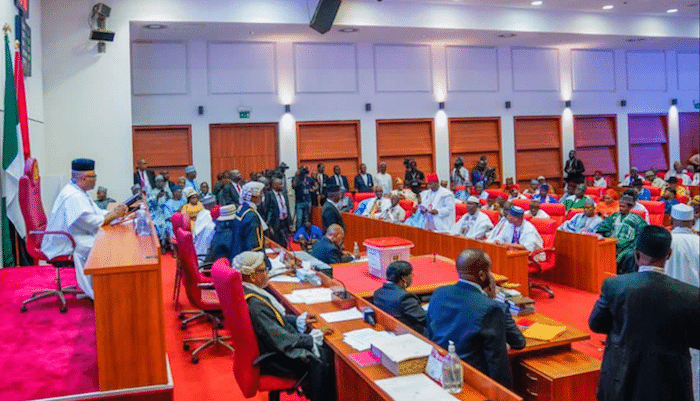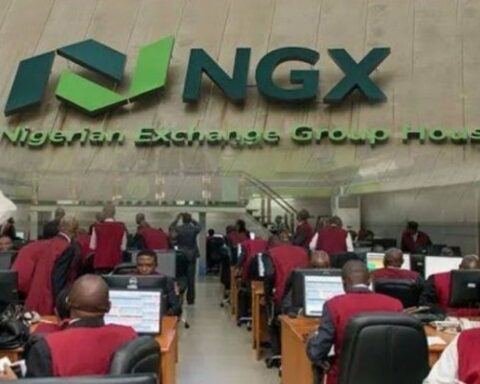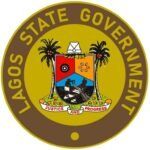Abbas: Nigeria’s tax to GDP ratio below global average
The Trade Union Congress (TUC) and Supreme Council for Shariah in Nigeria have kicked against the proposal by the Federal Government to increase the Value Added Tax(VAT) from the current 7.5 percent to 15 percent by 2030, as part of the tax reform programmes of the government
The TUC and SCSN, in their separate presentations at the public hearing organised by the House of Representatives on the four tax reforms bills before the National Assembly, said an increase in VAT will impact negatively on the people.
The four tax reform bills, which were transmitted to the National Assembly by President Bola Tinubu, on October 3, 2024, were passed for second reading by the House on February 12.
The proposed legislations which include “The Joint Revenue Board of Nigeria (Establishment) Bill, 2024, The Nigeria Revenue Service (Establishment) Bill, 2024, The Nigeria Tax Administration Bill, 2024 -and the Nigeria Tax Bill, 2024,” have stalled in the Green for four months, owing to controversies over some of the clauses, before their eventual passage for second reading.
Specifically, Section 146 of the Nigeria Tax Bill provides for an increase in VAT from the current 7.5 percent to 10 percent in 2025, 12 . 5 percent in 2026- 2029 and 15 percent in 2030.
Nonetheless, the TUC Secretary General, Nuhu Toro, in his presentation, on behalf of the Congress said the proposed increase of VAT from 7.5 percent will impose more hardship on the people.
Toro said “allowing the VAT rate to remain at 7.5 percent is in the best interest of the nation. Increasing it will place additional burden on Nigerians, many of whom are already struggling with the economic challenges and realities at a time when inflation is on the rise. Additional taxes will further strain households and businesses which eventually might slow down the economy. We are strongly of the opinion that VAT should remain at 7.5 percent.
“Secondly, we propose an increase in the tax exemption bracket to N2.5 million. The threshold for tax exemption should be increased from the current N800,000 as proposed in the bill to N2.5 million per annum. This will provide relief for struggling Nigerians within that income bracket easing the economic realities and increasing their disposable income. “
He added that “Our third concern is on TETFund and National Agency for Science and Engineering Infrastructure (NASENI) which is due to be scrapped and be defunded. The TUC is of the opinion that both TETFund and NASENI should remain a growing concern as these institutions have greatly impacted the country through their respective mandates. Both have been respectively instrumental in improving our Tertiary education and adopting a homegrown technology to enhance national productivity and self-reliance. Their continued existence is vital for sustaining progress in education, technology and economic development across the length and breadth of this country.”
Similarly, SCSN, in a presentation by its representative, Professor Ahmed Bello Dogarawa, canvassed the reduction of VAT from 7.5 percent to 5 percent. Nevertheless, the council said in a situation where the VAT rate cannot be reduced, the government should retain the existing 7.5 percent.
He said “While commending government genuine efforts to reform our tax system, the Supreme Council for Shariah in Nigeria (SCSN) wishes to bring to the attention of the National Assembly (Senate and House of Representatives) the following concerns on specific Sections of Nigeria Tax Bill (NTB) and Nigeria Tax Administration Bill (NTAB)
“ Reduce VAT rates back to 5% or in the worst case scenario maintain the present 7.5 %. Section 146 of the Nigeria Tax Bill, 2024 should read that: “Subject to the provisions of part IV of chapter eight of this Act, VAT shall be charged at 5% or 7.5% if necessary. ii) Delete S. 154(4) that requires “person whose supplies are chargeable to VAT at zero percent, shall pay VAT on taxable supplies consumed in the production of its supplies, and may thereafter request for a refund of the VAT paid. “
The Council also called for a clarity on VAT derivation and contained in the Nigeria Tax Administration Bill, and proposed a clear definition of derivation as the location where consumption takes place.
“The Council suggests the following amendments to clarify the term “derivation” and address related concerns:(i) Clearly define ” derivation” in the Bill as the location where actual consumption takes place, regardless of which office files the VAT returns. The following are alternative interpretations of derivation which should be taken to the interpretation section under Section 12 of the First Schedule: “Derivation in this Law means location where the actual consumption took place regardless of where VAT returns are filed.
The Nigerian Customs Service (NCS), in a presentation by its Comptroller General(CG), Adewale Adeniyi, said the tax reform bills will make the county more business friendly and competitive. Nonetheless, he expressed concerns that it might bring about jurisdictional conflicts.
According to him, ”Our concerns are laid out in a 17-page document, but key areas of conflict include Section 23, 29, and 41A of the Joint Revenue Bill.”
Nevertheless, Adeniyi added that “With success stories like Morocco’s customs modernization, which increased revenue by 37% and reduced clearance times by 65%, Nigeria’s Customs Service argued for preserving its autonomy. In fact, the NCS noted that since the enactment of the NCS Act in 2023, Nigerian customs revenue had surged by 92%, and trade facilitation had markedly improved. We should encourage collaboration between customs and tax authorities, not abolish customs or repeal an existing law.”
Also, the Nigeria Liquified Natural Gas (NLNG), represented by Clement Efeyita, Manager, Tax and Finance, canvassed for a zero rate VAT for exports.
Efeyita explained that “that way, exporters from Nigeria will be competitive globally. Another issue I would like to talk about is the fact that we would also like to mention that, and this is tied to the section to do with the Islamabad Act, we are of the view that agreements, contracts, that are already subject to the value-added tax rules should not be subject to ad valorem value-added tax.”
He added “we are clearly advocating that all companies that are subject to the current company income tax act at 30% as is being reflected in the Nigerian Tax Bill correctly, should be made to pay taxes in a similar manner. ”
Earlier, the speaker of the House of Representatives, Tajudeen Abbas, while declaring the public hearing open, said that Nigeria’s tax to Gross Domestic Product ( GDP) ratio is below the global average.
The speaker, who was represented by the House leader, Julius Ihonvbere, explained that the country’s economy is currently struggling with a tax to GDP ratio of 6 percent, against the World Bank minimum benchmark of 15 percent.
He explained that the bills represent critical proposals by the Executive arm of the Governor to expand the country’s tax base, improve compliance, and establish sustainable revenue streams for our national development. Nevertheless, Abbas noted that the House will scrutinize the bills thoroughly, to ensure that the interests of citizens are protected in the government tax reform.
According to him, “this 10th House recognizes the critical importance of the tax reform bills, the anxiety among Nigerians and the desire of the government to revamp our economy through an improved tax system and resolve to ensure a thorough legislative process that is open, transparent and inclusive.”
He added that “in every modern state, taxes are the bedrock of public revenue, providing the resources required to deliver education, healthcare, infrastructure, and security. Yet, Nigeria, despite being Africa’s largest economy, struggles with a tax-to-GDP ratio of just 6 percent which is far below the global average and the World Bank’s minimum benchmark of 15 percent for sustainable development.
” This is a challenge we must address if we are to reduce our reliance on debt financing, ensure fiscal stability, and secure our future as a nation.”
Abbas added that “taxes should be fair, transparent, and justifiable, balancing the need for public revenue with the burdens they impose on individuals and businesses. The House will, therefore, scrutinise these bills thoroughly, ensuring they align with the best interests of our constituents and the nation at large. We owe this duty to Nigerians, and as the People’s House, we must always be accountable to the people.
Follow us on all social media platforms @dailyquery for news around the globe.



























